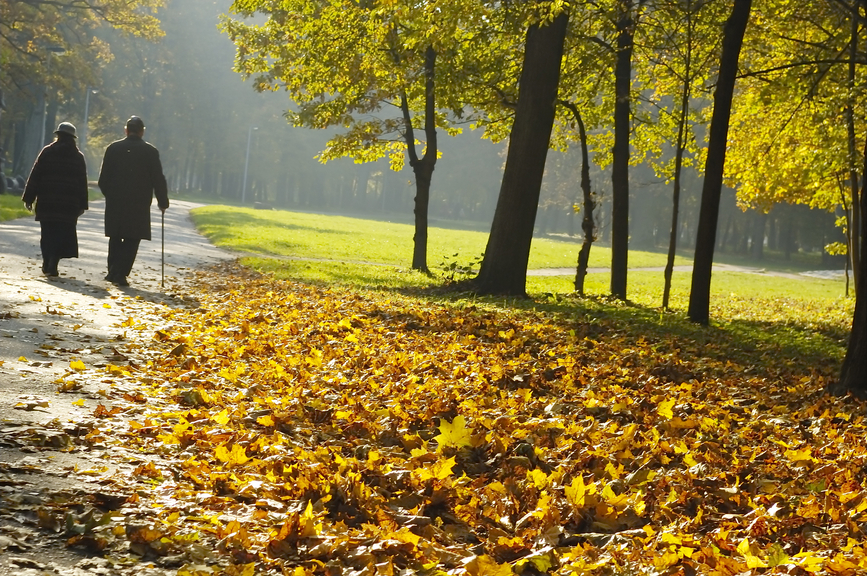by Ed Moran, LCSW
I saw them again last evening. I’ve never met them but I see them every night, walking hand in hand, taking their after-supper stroll. While I tend to be lousy at guessing ages, I suspect they’re both in their mid-seventies, and I like to imagine they’ve been married forever.
Next month, 18 years will have passed since my father lost his battle with colon cancer. This couple I see every night reminds me of what’s been taken from my mom, from me, and from my three siblings. That should be my parents on that nightly walk, holding hands, enjoying each other’s company. I suppose what I’m saying is, sometimes I still get angry, and sometimes I still want to know why.
But what I’ve discovered over time, through all these years of personal introspection and working with the bereaved, is that people spend an inordinate amount of time conjuring up blame when friends and family pass away. And they aren’t the only ones who struggle with blame. Victims of illness also get in on the exercise — it seems there’s more than enough blame to go around.
When a behavior is so common, there’s probably something of value in it. So what does blaming do for us? For many people, assigning blame creates the pretense of order in an otherwise chaotic situation. For example, a cancer diagnosis normally rocks people to the core. It shatters their sense of security. For some, it seems the only way to restore control is find out who or what is responsible. A smoker will blame their lung cancer on cigarettes. A drinker will blame their liver cancer on alcohol. Same thing goes for the wife of the smoker, and the children of the drinker. They all get in on the blaming. Someone who led a clean and healthy life, with no obvious risk factors, might choose to blame God. The possibilities are endless when the blaming begins.
Blame tends to reflect a sense of guilt for having gotten so sick. I’m being punished with this illness because I wasn’t a good person. I must’ve done something wrong to wind up with this illness. What did I do? It’s a common response because it offers a rationale (regardless of how irrational it might be) to explain an otherwise inexplicable turn of events. But it’s a dangerous path to start down. It can be extremely difficult to extricate oneself from that line of thinking, and it can drain one’s emotional energy that’s better suited to building the internal strength that’s needed to fight for survival.
Blame tends to infect people in a variety of ways. It isn’t always the illness itself that people feel guilty over — sometimes it’s the consequences of the illness. Several months prior to my father’s death, I was visiting for a few days. When the time came for me to head home, Dad began leading me toward the front door but stopped after a few feet. I looked at him from behind. The cancer had certainly taken a physical toll — his robe hung loosely over his frame, and his bones were more prominent now than I could ever recall. As I watched him, I noticed a slight shudder and then he bowed his head.
I put my arm around him and hugged him as tightly as I could. Through his tears he whispered, “I’m sorry. I’m so sorry I’m doing this to you.” Dad was blaming himself for what we were all going through because of his cancer. At a time when we should have been plying him with love and support, and making him understand how much he had always meant to each one of us, Dad’s final days were shrouded in a guilt he created but never deserved.
I suppose the argument could be made that blame can serve a positive purpose. Taking responsibility for our behaviors, real or imagined, can be a productive part of the process that leads to acceptance and change for the better. But when self-imposed guilt becomes an impediment to healing, or an obstruction to sharing your family’s love and warmth, then it’s time to say goodbye to the blame game. Because one thing is certain: blame will never change the ultimate outcome.
Ed Moran, LCSW, is a clinical social worker with Family Centers. Serving Greenwich, Stamford, Darien, New Canaan, CT, and Westchester County, NY, Family Centers is a United Way, New Canaan Community Foundation and Community Fund of Darien partner agency that offers counseling and support programs for children, adults and families. For information, call 203-869-4848 or visit www.familycenters.org.






